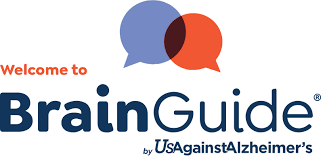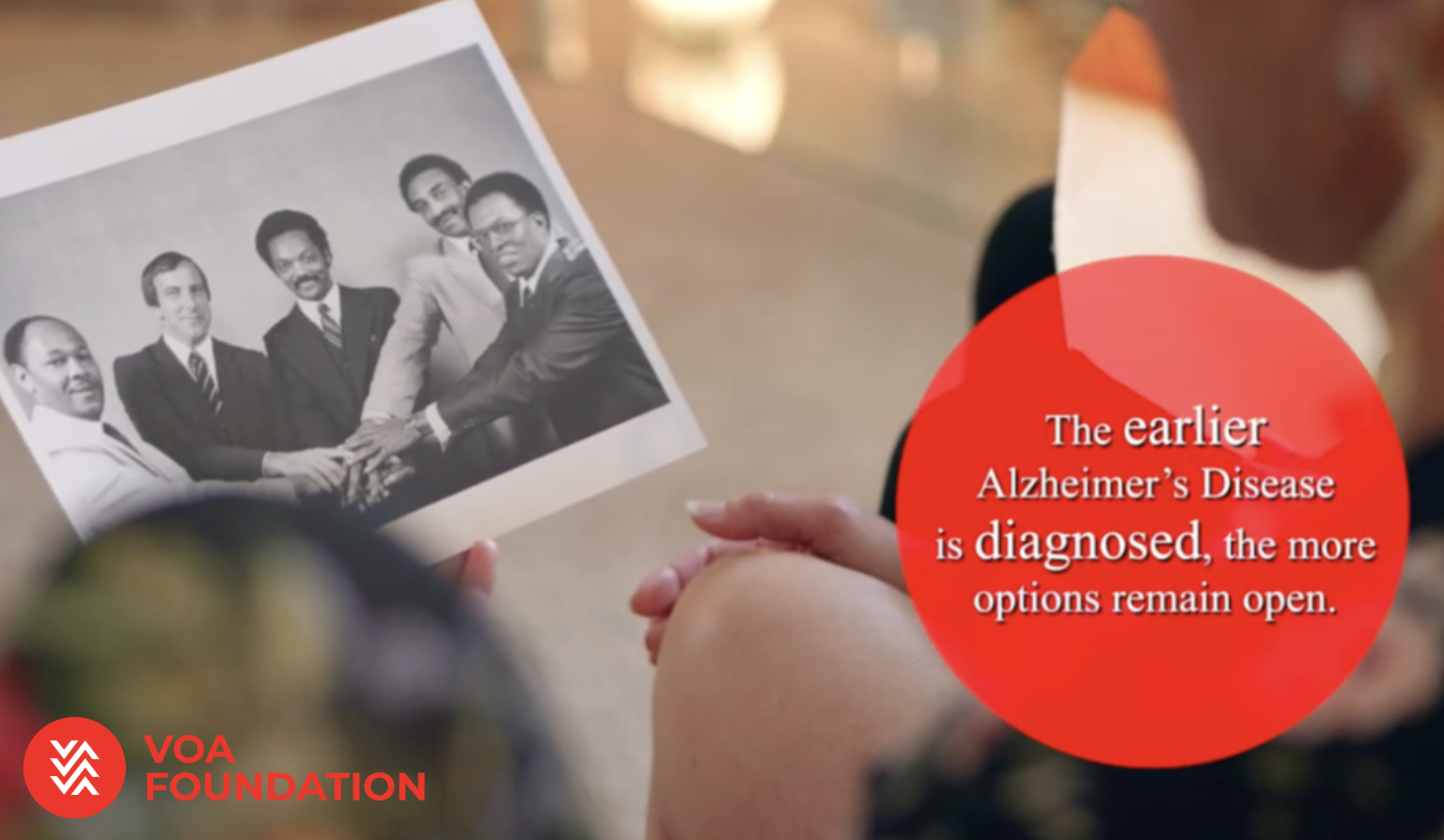VoA Foundation Newsletter
June Issue:
Alzheimer’s and Brain Awareness Month: Making Cognitive Screening a Right, Not a Privilege
VoA-Led Publication Charts Path to Early Alzheimer’s Detection
Why Early Detection Matters: A Video from the VoA Foundation
Supporting Travelers with Hidden Disabilities: The Sunflower Project
Additional Alzheimer’s Resources
About the VoA Foundation
Get in Touch!
About the VoA Foundation
We are proud to introduce the VoA Foundation, an educational initiative born from Voices of Alzheimer’s. Our organization, led by individuals living with Alzheimer's, is on a mission to transform the landscape of Alzheimer's care and understanding.
Through the VoA Foundation, we aspire to eradicate stigma, champion equality, and craft educational resources that shed light on cutting-edge innovations in care and treatment. Our vision? A world in which individuals grappling with Alzheimer's and other cognitive illnesses can embrace a life filled with well-being and joy.
Supporting Travelers with Hidden Disabilities: The Sunflower Project
We are excited to share a crucial program that stands to transform air travel for our community. Navigating busy airports and flights can be overwhelming – especially when others don’t realize the extra time, patience, or support we may need. The Hidden Disabilities Sunflower Program was created to address these challenges, allowing travelers to wear a discreet Sunflower lanyard to indicate they may need extra assistance.
While many U.S. airports have embraced the Sunflower Program, airlines have been slow to follow. United Airlines is leading the way and has become the first major U.S. airline to adopt the Sunflower Program, setting an important precedent for other airlines. We need your help to spread the word! Here’s how you can get involved:
Alert Your Community
Share information about the Sunflower Program to help travelers with hidden disabilities take full advantage of it.
Support United Airlines Encourage your community to fly with United to show support for an airline prioritizing accessibility.
Additional Alzheimer’s Resources
At the VoA Foundation, we are committed to providing valuable resources and support to those affected by Alzheimer's and other cognitive illnesses. We have compiled the best resources from leading Alzheimer’s organizations to provide the most comprehensive expertise for those living with the disease and their loved ones. Our subject areas include:
Follow Us!
Questions? Want to get in touch? Email us at voa-foundation@voicesofad.com.
Alzheimer’s and Brain Awareness Month:
Making Cognitive Screening a Right, Not a Privilege
Each June, Alzheimer’s and Brain Awareness Month calls attention to the importance of brain health and the critical need for early and accurate detection of Alzheimer’s disease and related conditions. Early detection can lead to earlier treatment, better care planning, and improved quality of life—but far too many Americans are still waiting too long.
Median diagnostic delays for cognitive impairment range from 1.5 to 3.2 years, and only 54% of patients receive a timely diagnosis within three years before or one year after symptom onset. Early signs are often mistaken for normal aging — 32.5% of caregivers initially dismiss symptoms — and more than 60% of people with cognitive impairment later regret delays in diagnosis.
This is a public health issue. As new treatments and more accessible diagnostic tools, like blood tests, emerge, the benefits of early detection are clearer than ever. Making cognitive detection a routine part of care for older adults — just like mammograms or cholesterol checks — can help reduce stigma and give individuals the best chance to take action early.
The Bill of Rights for People Living with Alzheimer’s Disease:
The Bill of Rights for People Living with Alzheimer’s Disease, introduced by Voices of Alzheimer’s (VoA) and the VoA Foundation, outlines the fundamental rights that individuals with Alzheimer’s and related disorders are entitled to.
One of its ten rights is the right to annual cognitive screenings using the most effective tools in detecting and diagnosing Alzheimer’s disease and related disorders. Recognizing cognitive screening as a right shifts our healthcare system toward one that values prevention, equity, and dignity – where every individual is empowered to take charge of their brain health, and no one is left behind due to stigma, inaccessibility, or delay.
Annual Cognitive Screening Resources for People Affected by Alzheimer's
We’ve compiled a list of resources dedicated to supporting individuals and caregivers in understanding, accessing, and making the most of annual cognitive screening.
VoA-Led Publication Charts Path to
Early Alzheimer’s Detection
A powerful step forward in the movement for early detection, a new article developed by Voices of Alzheimer’s was recently published in the Journal of Internal Medicine. Titled "Early Detection in Primary Care: Implementing Early Detection of Cognitive Impairment in Primary Care to Improve Care for Older Adults," the peer-reviewed article examines the feasibility and value of early detection of cognitive impairment in primary care.
Authored by a cross-disciplinary group of more than a dozen leading experts, the article makes the case for expanding primary care’s role in the early detection of cognitive impairment and examines how recent advances have made implementation more feasible.
Why Early Detection Matters:
A Video from the VoA Foundation
During Alzheimer’s and Brain Awareness Month, we’re highlighting the importance of annual cognitive screenings — a critical first step toward early diagnosis and better care.
Our new video, created in partnership with families, care partners, and clinicians, shares powerful stories about the impact of catching Alzheimer’s early. It also reminds viewers of their right to a free cognitive assessment through Medicare’s Annual Wellness Visit.
Early detection brings hope, access to treatment, and more time to plan.
Raise Awareness
Share this initiative on social media and within your network to build momentum for broader adoption.
The Sunflower Program is a significant step toward creating a more supportive and compassionate travel experience for everyone. We encourage you to take advantage of this resource and to share your stories so that, together, we can continue to drive meaningful change for the hidden disability community.













